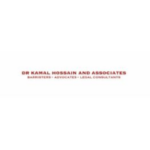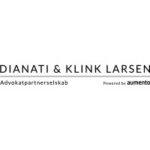-
Is your jurisdiction a common law or civil law jurisdiction?
The UAE is predominantly a civil law jurisdiction.
There are three primary sources of UAE law:
- federal laws and decrees (applicable in all Emirates);
- local laws (enacted by the individual Emirates), which are enforceable to the extent they do not contradict federal laws; and
- Shari’ah (Islamic law).
The UAE also has two financial free zones – the Dubai International Financial Centre (DIFC) in Dubai and the Abu Dhabi Global Market (ADGM) in Abu Dhabi – that operate under their own legal system in respect of civil and commercial matters, based on common law, with their own English language courts.
The laws and regulations of the DIFC are developed by the DIFC Authority (except for those laws and regulations related to financial services, which are developed by the Dubai Financial Services Authority). They are based on international standards and principles of common law that have been tailored to the region’s unique needs. The DIFC Courts operate within a common law framework and resolve civil and commercial disputes. The DIFC Courts also have their own Technology and Construction Division, established in 2017, which employs specialist judges and has industry-specific rules.
The ADGM similarly has its own set of commercial regulations and rules, its own financial services regulator and regulations, and its own courts. ADGM’s legal system is based on English common law, a number of English statutes, and ADGM enactments which have been primarily drafted from English statutory precedents as well as partly from other commercially respected common law jurisdictions.
-
What are the key statutory/legislative obligations relevant to construction and engineering projects?
The most important legislation relevant to construction and engineering projects is the Civil Transactions Law, commonly referred to as the “Civil Code”, which is the foundation of the law related to civil transactions.
The Civil Code sets out a number of general jurisprudential maxims derived from Islamic principles and contains a comprehensive set of provisions in relation to the formation, interpretation and performance of contracts. It also sets out remedies available in the event of a breach of contract and for other circumstances (such as force majeure), and includes provisions related to acts causing harm/tortious liability (see Question 5 below).
One overarching provision of general application that is frequently cited in the context of construction contracts is Article 246, which requires parties to perform contracts in a manner consistent with the requirements of good faith as well as in accordance with the contents of the contract. Article 246 also states that a party’s obligations shall not be limited to the express requirements expressly contained in the contract, but shall include other necessary requirements for the contract in accordance with the law, custom and the nature of the transaction.
In addition to these general provisions, the Civil Code contains a specific set of provisions dealing specifically with Muquwala contracts (contracts for making something or performing work in return for compensation, which include construction contracts). These include a number of default provisions, which will apply in the absence of the parties having agreed their own terms (for example, in relation to payment – see Question 14), as well as mandatory provisions applicable to all construction contracts. An example of a mandatory provision is the decennial liability provision in Article 880 of the Civil Code.
The Commercial Transactions Law (commonly referred to as the “Commercial Code”) also contains provisions that are applicable to construction and engineering projects. In particular, Article 2 of the Commercial Code confirms the overarching principle that commercial parties will be bound by the agreements they have entered unless they contradict a mandatory provision of law. The Commercial Code (along with the Civil Code) also prescribes limitation periods that may apply to construction contracts (see Question 25 below).
-
Are there any specific requirements that parties should be aware of in relation to: (a) Health and safety; (b) Environmental; (c) Planning; (d) Employment; and (e) Anti-corruption and bribery.
a) health and safety;
Employers have the duty to protect employees against injuries, so should (among other things) provide employees with:
- suitable means of protection against injuries and dangers such as fire from use of machinery, work equipment and against occupational diseases that may be contracted during work;
- medical insurance (in Ajman and Sharjah this only applies to public sector not private sector as of yet) and a medical check-up once every six months to examine the employees who are exposed to the possibility of contracting occupational diseases;
- health and safety training and guidelines; a safe, appropriate working environment; and appropriate protective clothing. Any safety guidance provided by employers must be both in Arabic and in a language that the relevant employees can understand.
Construction and industrial workers are not permitted to work during the hottest hours of the day during the summer. Any firm found to have staff working during the designated break time is liable for a fine of AED 5,000 per worker up to a maximum of AED 50,000.
b) environmental issues;
The UAE government has put emphasis on the protection of environment and sustainable development. The key themes to be aware of are carbon footprints; UAE’s limited water sources; overfishing; waste generation; air pollution; land degradation and desertification. Of particular relevance to construction projects:
- there is a requirement for developments to ensure that air pollutants are kept under established permissible limits;
- any activities involving the operation of machinery, equipment, warning devices and loud speakers must not exceed permissible noise limits;
- parties must consider environmental protection, pollution control and rational use of natural resources when planning, establishing and executing construction developments.
c) planning;
Permits are required for any sort of construction work. Employers will need to ensure all permits have been obtained before beginning work (see Question 4 below).
- No person/company may implement construction works that permanently or temporarily change any land or property, wholly or in part, without obtaining the relevant permit.
- Construction works must be implemented as per approved plans and drawings.
d) employment;
From a construction perspective, the employer’s key obligations and liabilities are those related to the workers’ safety and work-related injuries, as outlined below.
Safety
The key health and safety requirements are set out in response to Question 3(a) above.
A periodic evaluation of the work conditions must be processed by the employer to ensure compliance with the applicable rules and with the guidance issued by the Ministry of Human Resources and Emiratisation (MOHRE).
MOHRE will supervise the employer’s conduct and will run inspections to ensure the adherence to the applicable rules and guidance.
Work-related injuries
As a starting point, the employer will be liable for the medical costs and expenses associated with a work-related injury, or a work disease, until the worker’s recovery or until his disability is confirmed.
An employer’s liability for workplace injuries is subject to certain exceptions, including:
- where the injury was a result of gross or deliberate misconduct by the employee, or occurred whilst the employee was under the influence of drugs or alcohol;
- if the employee intentionally violated health and safety instructions; or
- where an employee has intentionally brought about his own injury, or refuses without good reason to attend a medical examination.
Whenever the worker is unable to report to work due to a work-related injury or disease, the worker must receive his full salary for the duration of treatment or for a six-month period, whichever is less. After the first six-month period, the employee will receive half-salary for a maximum period of six months, or until they resume work, their disability is confirmed, or they die (whichever is earlier).
In the event of the worker’s death as a result of a work-related injury or disease, the employer shall pay the heirs compensation equal to 24 months’ basic salary capped at AED 200,000 (and, irrespective of the employee’s salary, of no less than AED 18,000). This compensation does not prevent the heirs from seeking further damages or compensation.
Other obligations and liabilities
The employer is responsible for the statutory employment entitlements including, but not limited to, timely payment of salaries via the Wage Protection System (WPS) (save that certain free zones are not subject to WPS), accommodation as per MOHRE’s rules, leave, notice period, repatriation ticket, recruitment costs, any other contractual benefits and medical insurance. Upon the employment expiry, the employer must pay the employee the end of service gratuity and any outstanding monetary entitlements within a period of 14 days.
In line with the concept of “victimisation” found in many common law jurisdictions, in the event an employee is terminated due to their filing of a complaint with MOHRE/the applicable court, the employee will be eligible to compensation in a sum not exceeding three months’ salary. From an immigration perspective, the employer must not employ any worker without having the proper work permit and visa in place and must not let an employee work for another employer while under their sponsorship unless relevant permits are obtained. In onshore jurisdictions, employees’ contracts must also be registered with the requisite authority.
Further miscellaneous obligations include:
- employers must abide by applicable emiratisation rules. Whilst frequently being updated, these typically require employers of 50 workers or more to ensure that a minimum of 2% of their skilled workforce comprises Emirati nationals;
- employers are obliged to register any employees who are UAE or GCC nationals with the relevant pension authorities and abide by the applicable contributions and deductions from the employee’s salary;
- any entity hiring more than 50 employees must have written employment policies in place;
- employers are obliged to maintain all employee records for a period of two years following the end of employment;
- whilst not directly obliged to register their employees, employers are required to remind their employees to enrol in the UAE national unemployment scheme.
The labour law provides for a fine ranging from AED 5,000 to AED 1 million for violating its provisions.
e) Financial crimes;
Anti-bribery and corruption
Anti-bribery and corruption (ABC) provisions in the UAE are contained in the Federal and Emirate-specific penal codes and human resources management laws. There are no ABC laws that are specific to construction. However, employees of state- or semi-state-owned construction companies would come within the scope of the Federal and relevant Emirate-specific ABC provisions.
The Federal Penal Code criminalises the act of offering directly or indirectly (regardless of intention) to a domestic or foreign public servant or an employee of an international organisation any gift, benefit or grant, in order to induce them to:
- commit or omit an act that is otherwise part of their duty; or
- abuse their power.
The Federal Penal Code further prohibits companies or their employees to act as an intermediary for the offer, request, acceptance or delivery of a bribe.
The Federal Human Resources Law prohibits public employees from accepting any gifts that are not promotional or branded in nature. Such gifts may only be distributed to employees by a specific unit within the department responsible for that role. The law also prohibits public employees from accepting or facilitating bribes to commit or omit any of their duties.
ABC provisions that apply to Emirate-specific public officials include the Federal Penal Code and the following local laws:
- The Dubai Penal Code criminalises the act of offering or accepting a bribe for a public official to commit or omit any of their duties. It also prohibits offering or accepting a benefit without compensation where the official is or may be involved in procedures or work with the person offering the benefit.
- The Dubai Government Human Resources Management Law prohibits the offering or accepting of bribes for a public official to commit or omit any of their duties. It also prohibits accepting any gifts that are not promotional or branded in nature. Such gifts may only be distributed to employees by a specific unit within the department responsible for that role.
- The Abu Dhabi Penal Code criminalises the act of offering or accepting a bribe to or by a public official. It also prohibits a public official abusing their position or trying to get any material benefit for themselves, a member of their family or person in their custody.
- The Sharjah Civil Service Law prohibits public employees from accepting a bribe for performing their duties.
Some Emirates have civil service laws that impose general moral obligations on public employees and require compliance with all applicable state laws.
In the private sector, the Federal Penal Code prohibits directors, managers or employees of a company from:
- demanding or accepting a bribe to commit or omit any of their duties (regardless of intention);
- offering to a director, manager or employee of another private entity a bribe to induce them to commit or omit any of their duties (regardless of intention).
To minimise the risk of violating anti-bribery regulations, companies should:
- establish and maintain an appropriate anti-corruption training programme for their employees;
- have clear and documented policies containing examples of acceptable and unacceptable behaviours in relation to bribery and corruption;
- make sure that all payments made with company funds have been duly authorised by management; and
- accurately reflect all expenditures in their financial records. Undisclosed or unrecorded accounts should not be established for any purpose.
The abovementioned procedures are taken into consideration by the regulator when assessing the amount of the penalty to be imposed for violating anti-bribery regulations.
Anti-money laundering and financing terrorism
The Federal Anti-Money Laundering Law was established in order to combat money-laundering practices and to bring the national legal compliance structure in line with international standards. Under this law, financial institutions and designated non-financial institutions are under an obligation to report to the UAE Financial Intelligence Unit when they have reasonable grounds to suspect a transaction or funds may be a result of money laundering. The Law also seeks to counter financing of terrorist organisations.
Reporting requirements
The Federal Penal Code imposes a general duty on all persons who have knowledge of a crime (including bribery, corruption, fraud or any other financial crime) to report it to the competent authorities, and failure to do so is a punishable offence.
-
What permits, licences and/or other documents do parties need before starting work, during work and after completion? Are there any penalties for non-compliance?
Categories of permitted construction-related activities and their corresponding licensing requirements vary among the Emirates, depending on the type of project, height of the building and any internal directives that may be applied by the municipality of such Emirate. In addition, different authorities with distinct requirements govern different locations within the Emirates themselves (such as the Dubai Municipality (DM), JAFZA and TECOM, among others, in Dubai). The following generally applies to projects in the UAE:
Before starting work
In both Abu Dhabi and Dubai, almost all commercial entities must have a trade licence issued by the Department of Economic Development. All consultants and contractors must also obtain a classification/licence from the Abu Dhabi Department of Municipalities and Transport or the Dubai Municipality (as applicable) to allow them to carry out contracting work or engineering.
The contractor must obtain no-objection certificates (NOCs) from relevant government departments. Once NOCs are obtained, the employer applies for a building permit.
Before or during the works
Various permits are required to carry out the works including permits for civil works, an environmental permit, a permit regarding roads and transport ways, an approval of the plan for disposal of hazardous waste, permits from the relevant government entities for utilities (including water, electricity and sewage, and telecommunications).
During the works, various inspections will need to be carried out and signed off by the relevant authorities (for example, for the foundations, the first-floor slab and the frame of a building).
On completion
The contractor requests and receives final inspection from the relevant authority and from civil defence. The employer then applies for a Building Completion Certificate. The Building Completion Certificate allows the building to be occupied.
-
Is tort law or a law of extra-contractual obligations recognised in your jurisdiction?
The UAE Civil Code recognises a number of non-contractual obligations, including those arising from unilateral acts, operation of law, and “acts causing harm” (equivalent to tortious liability). However, most of these will be of limited application to construction projects in circumstances where the parties have agreed detailed contractual provisions.
Liability for “acts causing harm” covers both direct and consequential harm. In circumstances where the harm is direct, it must unconditionally be made good. Where harm is consequential, tortious liability arises only in the presence of a wrongful or deliberate action or omission on the part of the tortfeasor.
-
Who are the typical parties involved in a construction and engineering project?
The developer or employer, which will often be one of the following:
- commercial and leisure real estate developers (many of which are wholly or partly government-owned);
- public works authorities and public utilities;
- project companies set up by sponsors to develop a specific project financed by limited-recourse financing. Where projects are developed on a PPP model, government entities are increasingly seeking a minority stake in the project company; and
- oil and gas companies (including state-owned organisations such as Abu Dhabi National Oil Company).
Consultants. Consultants are typically engaged to provide a variety of services including the following:
- architecture and engineering;
- project supervision; and
- project management.
Main contractor.
- Main contractors in the UAE are often joint ventures, particularly in the case of “mega” projects where it is almost impossible for a single contracting entity to carry out the whole project. Recognising the importance of local and international experience, it is common for local and international contractors and consultants to form a consortium to bid and undertake projects together.
- It is also common for special purpose vehicles (SPVs) to be set up for large-scale projects in the UAE to ensure effective risk management. These SPVs generally take the form of a limited liability company specifically created for the project between a local contractor, an international contractor and, for example, a facilities management contractor.
- Smaller projects can be undertaken by a single contractor, which may be a local contractor or a locally-established entity of an international contractor. Any international contractor that is engaged to undertake a project in the UAE must establish a local presence or branch office.
Subcontractors.
- The main contractor will often package parts of the works to specialist subcontractors and, in many cases, will be required to accept subcontractors that have been nominated by the employer (see Question 11 below).
Engineer/architect.
- The engineer plays a key role on most projects but standard form contracts tend to be amended so that the engineer requires the employer’s approval for many important decisions.
- Architects of Record are often appointed to take ultimate responsibility for the project and deal with (and be named on) the licences and permits.
-
What are the most popular methods of procurement?
Under the most commonly used procurement and contractual arrangements (involving both local and international parties), the employer engages its own design, supervision and project management consultants and separately procures a contractor to construct the project according to that design.
Alternatively, particularly large-scale projects are often procured on a design-and-build basis, so that the contractor is also responsible for the design of some or all of the works to meet requirements specified by the employer; or on an EPC/turnkey basis, so that the contractor is responsible for the engineering, procurement and construction of a ready-to-use asset capable of achieving specified outputs and performance criteria. In each of these cases, the contractor may carry out the design and engineering in-house or by engaging external consultants.
-
What are the most popular standard forms of contract? Do parties commonly amend these standard forms?
The most common construction contracts used in the UAE are the International Federation of Consulting Engineers (FIDIC) suite of contracts.
The FIDIC Red Book is the most common form of FIDIC used in the UAE. Many large developers have their own forms of contract but these often reflect to varying degrees the structure and terminology of the FIDIC forms. The 1999 FIDIC forms remain the most popular base for procuring new projects, but the 1987 FIDIC forms are still seen commonly on legacy projects and hence are very familiar to most construction professionals in the UAE. The 2017 FIDIC suite is beginning to gain some traction in the market, but has still not achieved widespread use. There are several reasons for this, including a preference to use familiar contract forms particularly on projects with aggressive procurement timeframes, and a perception that the more prescriptive approach adopted by the 2017 FIDIC suite is not well suited to the way in which contracts are typically administered in the UAE.
It is common in the UAE for FIDIC contracts to be amended to be much more heavily in favour of the employer. Such re-allocations of risk can be extensive. The role of the Engineer under the FIDIC Red Book form is often circumscribed requiring the Engineer to seek the employer’s approval for many important decisions that the Engineer makes under the contract.
Contracts based on the FIDIC Yellow Book are also used for design-and-build projects and on the FIDIC Silver Book are used for EPC contracts, while the other FIDIC forms are also used in relevant circumstances.
Bespoke contracts are increasingly common for mega projects and have always been popular for EPC contracts, particularly utility and industrial projects, or those involving project finance.
-
Are there any restrictions or legislative regimes affecting procurement?
Subject to limited exceptions, Abu Dhabi government departments that procure construction projects in the Emirate must use the Abu Dhabi Government Conditions of Contract for construction or design-and-build contracts, which were introduced in 2007. These are based on the 1999 FIDIC Red and Yellow Books respectively, but have been amended to shift significant additional risk onto the contractor.
There are no conditions of contract prescribed for use by all Dubai government departments. However, many government departments, including the Roads and Transport Authority (RTA) and the Dubai Municipality (DM), have their own bespoke conditions of contract. The RTA and DM conditions of contract are both based on the 1987 FIDIC Red Book with amendments to impose additional risks and obligations on the contractor.
Procurement of contracts above AED 700,000 in relation to federal (but not state) government projects are governed by the Conditions of Purchases, Tenders and Contracts, Financial Order. Contracts covered by the Order must be tendered publicly, with international tenderers required to work either through a joint venture with a UAE-based entity, incorporate as a UAE entity majority owned by UAE nationals, or retain a UAE national representative.
Individual Emirates also maintain procurement rules for contracting with related government entities.
-
Do parties typically engage consultants? What forms are used?
Consultants and construction professionals are typically engaged by the employer, particularly on larger projects. They are generally selected through a competitive tender process. On smaller local projects, employers may appoint construction professionals from a pre-qualified list or those with which they have an existing relationship.
Construction professionals are usually appointed under conventional professional services contracts. The FIDIC White Book (Client/Consultant Model Services Agreement) is widely, but not invariably, used as the platform document, often with supplementary additional conditions.
It is common for construction professionals’ contracts to include:
- provisions imposing the familiar standard of “reasonable professional skill and care”;
- exclusions of liability (for example, for indirect and consequential losses). However, these provisions are subject to mandatory statutory terms such as decennial liability;
- requirements to maintain Professional Indemnity Insurance (with limits on liability usually reflecting the insurance coverage).
-
Is subcontracting permitted?
Subcontracting is permitted, except where prohibited or constrained by the terms of the main contract. Given the scale of the projects and the specialist works required, subcontracting is very common, particularly in relation to specialist fields such as design/engineering, enabling and foundation works, mechanical, electrical and plumbing works, façade works and any specialist systems required for the project.
“Nominated subcontractors” are common in the UAE, where the employer selects the subcontractor and requires the main contractor to appoint that particular subcontractor for the specified work.
-
How are projects typically financed?
Historically, government projects in the UAE have been self-financed, and recent budget announcements confirm a continued investment in infrastructure and construction projects.
However, there is now a clear emphasis on Public Private Partnerships (PPPs) for delivering transport, infrastructure, education and urban development projects. These projects are usually financed on a limited-recourse basis by a consortium of local and international banks. This involves providing security over the project assets, rather than the assets of sponsors or investors. For larger projects, in many cases, the financing is underwritten, in whole or in part, by international export credit agencies and a combination of local, regional and international banks. Both Abu Dhabi and Dubai have issued PPP laws to provide a sound legal basis for such projects. In addition, there are specific sector laws which deal with privately funded projects in the electricity and water sector. In September 2022, the UAE Cabinet of Ministers announced a new federal-level law aimed at regulating PPPs. It is unclear whether this law, which is yet to be published, will repeal or amend any of the regulatory regimes in force that currently govern PPPs, although it is expected to focus on those Emirates that do not currently have a regulatory framework.
PPP arrangements are usually based on a long-term concession agreement with the contracting authority and a special purpose company established to undertake the project. The special purpose company will then subcontract its obligations to construct and operate the project to capable third parties (who may often be equity investors in the project company). Appropriate risk transfer to the contractor in construction documentation is a key factor in the funder’s assessment of the strength of the security package. Lenders will carry out due diligence on the construction and operation documentation to ensure there is an effective risk transfer down to the contractors, to ensure that they are not unduly exposed to risks in the project company. The financing is typically on a limited-recourse basis with the commitment of the shareholders of the project company being clearly defined and limited.
Privately funded projects (other than PPP-style projects) most commonly involve real estate or tourism development projects, which are financed by lenders on a corporate or full recourse basis. In some cases, Islamic finance structures are established which provide further alternative financing options.
-
What kind of security is available for employers, e.g. performance bonds, advance payment bonds, parent company guarantees? How long are these typically held for?
Where the contracting entity is a subsidiary or special purpose vehicle, the employer will often require a parent company guarantee from the ultimate parent entity (or entities) to secure the performance of the contractor’s obligations and protect the employer against the consequences of insolvency of the subsidiary company.
The following types of bond are common in the UAE:
- Bid bond – This is provided during the bidding process and guarantees that the bidder will honour the terms of the bid.
- Performance bond – This is generally held from the commencement of the contract until Taking Over or the end of the Defects Liability Period. Employers continue to insist that bonds are unconditional and “on demand” despite a number of banks and contractors recently advocating for a move to conditional bonds. In the government sector, Abu Dhabi, Dubai and federal public procurement laws all mandate on-demand bonds to be provided.
- Retention or retention bonds – Typically, employers tend to retain a percentage of each progress payment as “retention” (see Question 16 below). Sometimes the employer will agree to an on-demand retention bond in lieu of a retention.
- Advance payment bond – It is common for employers to make an advance payment to help finance the works, in exchange for an on-demand bond. The advance payment will then typically be deducted through the monthly certified payments, with the bond being correspondingly reduced in value.
Lenders will typically seek a range of securities including a legal mortgage over the land or site which may take the form of a sub-usufruct, mortgages over company assets, plant and machinery, and direct agreements and collateral warranties (see Question 20 below).
-
Is there any specific legislation relating to payment in the industry?
The Civil Code incorporates the general presumption that payment is due upon completion of the relevant works and sets out default payment obligations applicable to lump sum and re-measurable contracts, and where the parties have failed to specify the basis of remuneration in the contract. However, these provisions are rarely referred to because the parties are free to, and almost invariably do, agree specific payment terms in their contracts which will generally be enforced in accordance with their terms and will take precedence over the default provisions in the Civil Code.
-
Are pay-when-paid clauses (i.e clauses permitting payment to be made by a contractor only when it has been paid by the employer) permitted? Are they commonly used?
There is nothing in UAE law that prohibits or restricts the use of pay-if/when-paid clauses. The use of pay-if/when-paid clauses is very common as main contractors seek to pass certification and payment risks down to subcontractors. This is seen as an important protection for main contractors, particularly where they are being required to subcontract to nominated subcontractors that have been selected by the employer and with whom they may not be familiar or comfortable. Subcontractors will often seek to include similar provisions with their own subcontractors and suppliers depending on the bargaining positions of those involved.
The operation of these clauses will usually create a “suspensive condition” under UAE law. Such suspensive conditions are generally enforceable in accordance with their terms but in certain circumstances (for example, involving fraud or “fault”) the UAE Courts (or an arbitral tribunal) may deem the suspensive condition imposed by a pay-when-paid clause to be deemed to have materialised (and therefore of no further effect).
-
Do your contracts contain retention provisions and, if so, how do they operate?
It is common practice in the region for construction contracts to contain retention provisions. These will typically involve a percentage of each progress payment being retained by the employer, which is then commonly released in two tranches with the first tranche released upon completion of the works and the second released following issuance of the defects liability certificate.
A total retention of 10% of the contract price is common, but this may vary (occasionally significantly) depending on the nature of the project and respective bargaining power of the parties. In particular, highly technical projects such as energy or rail frequently provide for a higher sum to be retained in relation to the functional performance of the works (for example, in relation to Key Performance Indicators or performance-related damages). In order to facilitate cash flow, the employer will often agree, either at the outset or during the course of a project, to allow the contractor to provide an on-demand retention bond in lieu of withholding a retention.
-
Do contracts commonly contain liquidated delay damages provisions and are these upheld by the courts?
Recovery of liquidated damages is permitted under UAE law and the inclusion of such a provision is commonplace in relation to delay and sometimes in relation to failures to meet performance guarantees. In principle, a liquidated damages provision allows the employer to claim damages for the delay (or failure to meet performance guarantees) without the need to establish its actual losses or prove the causal link between the delay/failure and the loss claimed.
However, Article 390(2) of the UAE Civil Code allows a court (or arbitral tribunal) upon the application of a party to vary the liquidated damages provision so that the compensation awarded is equal to the harm actually suffered. This is a mandatory provision and therefore any attempt to contract out of it will be void. In contrast to the position under some other civil law jurisdictions, Article 390(2) anticipates the possibility that the court may also increase (as well as decrease) the liquidated damages to match the actual loss, although an upward adjustment is exceptionally rare and, in practice, this provision is almost always relied upon by a contractor seeking to reduce the liquidated damages (rather than by an employer trying to increase the liquidated damages).
The practical effect of a liquidated damages provision in the context of Article 390(2) is that the agreed liquidated damages will be payable unless the contractor can discharge the burden of proving that the employer’s actual harm suffered was less than the specified liquidated damages.
-
Are the parties able to exclude or limit liability?
In line with the principle of freedom of contract, clauses that seek to limit or exclude liability are generally enforceable under UAE law, subject to various exceptions including:
- Article 296 of the Civil Code prohibits excluding liability for tortious liability. While the position is not explicit, it is likely that any attempt to limit (rather than entirely exclude) liability would likewise be void.
- Liability for fraud or serious default cannot be excluded or limited. Whether a circumstance constitutes a serious default will fall to be considered by a court or arbitral tribunal on a case-by-case basis but any deliberate breach of contract is likely to be considered a serious default.
- Any attempt to exclude or limit liability that contravenes a mandatory provision of law will be void. For example, it is not possible to limit or exclude liability in respect of the decennial liability provided for under Article 880 of the Civil Code.
-
Are there any restrictions on termination? Can parties terminate for convenience? Force majeure?
Termination
Pursuant to Article 892 of the Civil Code, construction contracts can be terminated upon completion of the agreed works, by mutual agreement, or by order of the court.
However, in practice, termination of a construction contract under UAE law involves nuanced issues that will need to be considered carefully on a case-by-case basis in light of the specific contractual terms and the factual circumstances involved.
It is common for termination clauses to expressly state that for termination for breach of contract notice is not required (where that is what the parties have agreed), and to state that the termination will take effect automatically and without the need for a court order (i.e. that termination by operation of the clause in question constitutes mutual consent for the purposes of Article 892 of the Civil Code). Where these points are not expressly addressed, there is a risk that a court will determine that a valid notice is a condition precedent to termination and/or that termination will only become effective following a court order.
It is also important to ensure that all contractual notices and other procedural requirements are strictly followed, and that the manner and circumstances of the termination are not in breach of mandatory legal principles such as the requirement to exercise contractual rights in a manner consistent with the requirements of good faith and in a manner that does not constitute an abusive exercise of a party’s rights.
While some uncertainty remains, it is generally accepted that the exercise of a contractual right to terminate for convenience constitutes a termination by mutual agreement for the purposes of Article 892 of the Civil Code. However, courts have, in certain circumstances, awarded contractors compensation, including for loss of anticipated profits where the contract has been terminated for convenience.
Where the contract does not contain express rights to terminate, a party may, after serving formal notice, seek an order from the court terminating the contract in accordance with Article 272 of the Civil Code.
It is also necessary to consider whether the contract is in fact being terminated (or dissolved) within the meaning of Articles 892, 271 and 272 of the UAE Civil Code, or whether it is merely the contractor’s right (and obligation) to continue and complete the works that is being terminated. It is still common to see termination provisions based on the 1987 FIDIC forms whereby the contract itself remains on foot but the remaining scope of work is removed from the contractor, and specific provisions will set out the parties’ amended rights and obligations (including in respect of further payments) subsequent to termination. Such provisions are generally considered valid and enforceable as a matter of UAE law (although the position is not without controversy).
Force majeure
Article 273 of the UAE Civil Code addresses the general position in relation to termination/dissolution of a contract in circumstances where performance has become wholly or partially impossible due to an event of force majeure. Further, Article 893 of the Civil Code, which applies specifically to muquwala contracts (which include construction contracts) allows a party to apply to the court (or an arbitrator) to terminate/dissolve the contract where a cause has arisen that prevents performance or completion of the works.
The application of these provisions needs to be considered in light of the specific factual circumstances, the extent to which performance has become impossible, and the remedies (if any) and other relevant provisions agreed by the parties in their contract.
-
What rights are commonly granted to third parties (e.g. funders, purchasers, renters) and, if so, how is this achieved?
Security typically taken by lenders in the UAE does not differ significantly from the norm in other local jurisdictions. It is likely to include one or more of the following:
- Security over assets of the project company including plant and machinery, bank accounts and contractual rights. This has become easier with the recent UAE movables pledge law, which allows for greater flexibility over the assets that can be secured, including future assets.
- A legal mortgage over the land or site, which may take the form of a sub-usufruct. A usufruct is the right to use, enjoy and occupy land or property, belonging to another person for a fixed term. For example, a usufruct can be granted to a free-trade zone entity of government land where the construction project will take place (the UAE has a number of free-trade zones intended to promote domestic and foreign investment). The free-trade zone entity will then grant the borrower a sub-usufruct, over which the lenders will take a legal mortgage.
In more complex projects, in particular those involving limited recourse financing, a funding institution will generally require either:
- Direct agreements. These agreements give the funder “breathing space” when a contractor’s termination right has become exercisable. The contractor allows the funder an opportunity to replace the project sponsor, complete construction and recover its debt.
- Collateral warranties. These agreements create a direct contractual relationship between a contractor and a funding institution whereby the contractor undertakes to the funder to comply with the construction contract.
Purchasers will typically have recourse against the developer in accordance with the Sale and Purchase Agreement and the relevant regulatory framework which differs between Emirates, whereas tenants’ recourse will typically be against the landlord in the first instance.
The regulation of property transactions, including those involving “off-plan” properties, differs between Emirates and includes the Abu Dhabi Department for Municipal Affairs in Abu Dhabi and the Real Estate Regulatory Agency (RERA) in Dubai, which both require developers to open escrow accounts to protect down-payments on off-plan properties.
-
Do contracts typically contain strict provisions governing notification of claims for additional time and money which act as conditions precedent to bringing claims? Does your jurisdiction recognise such notices as conditions precedent?
It is common for construction contracts in the UAE to include notice requirements which purport to operate as a condition precedent to an entitlement to an extension of time, or for an amendment to the contract price, or additional payment.
As a general principle, parties are free to agree any terms in a commercial agreement provided they do not contravene a mandatory provision of law. Accordingly, the starting point is that clauses containing conditions precedent to additional time or payment should, in principle, be upheld as a condition precedent if the clause sets out sufficiently clearly the specific timing and requirements in respect of the delivery of notice and specifies that the associated rights will be lost in the event that the required notice is not given.
However, parties seeking to avoid the strict application of a condition precedent provision will often raise a number of issues under UAE law, including as to the proper interpretation and application of the notice provisions, whether there has been a waiver (either express or implied) of the condition precedent, whether the party relying on the condition precedent has failed to perform its obligations in good faith in accordance with the requirements of Article 246 of the Civil Code, and whether reliance on the notice clause would amount to an unlawful exercise of that right for the purposes of Article 106 of the Civil Code.
-
What insurances are the parties required to hold? And how long for?
The insurances that a party will need to hold vary depending on the emirate or free zone where they are registered and undertaking activities. However, contractors will generally be required, as a minimum, to maintain Employer’s Liability Insurance, Public Liability Insurance and Health Insurance for employees.
In addition, unless the contractor is covered by project insurances taken out by the employer, they will generally take out Contractor’s All Risk Insurance that covers property, personal injury and other add-ons, such as motor vehicle insurance and plant and equipment cover as appropriate.
Professional Indemnity insurance is required for any party undertaking engineering or design and is a prerequisite to obtain classification as an engineering consultancy (see Question 4 above).
Contractors and engineers should also consider obtaining decennial liability insurance to protect against liability under Article 880 of the Civil Code.
-
How are construction and engineering disputes typically resolved in your jurisdiction (e.g. arbitration, litigation, adjudication)? What alternatives are available?
Arbitration – Arbitration is still the most common dispute resolution method for mid- to large-sized projects. The main reasons for this are confidentiality, international recognition of awards and the ability to select a tribunal with experience that the parties feel is appropriate and relevant to the matters in dispute. The introduction of the comprehensive Federal Arbitration Law (Federal Law No. 6 of 2018) has further increased the attractiveness of arbitration in the UAE.
The Dubai International Arbitration Centre (DIAC) is now the primary arbitration centre in Dubai following the abolition by Government Decree in September 2021 of the DIFC-LCIA Arbitration Centre (by abolishing its Dubai operator, the DIFC Arbitration Institute) and the Emirates Maritime Arbitration Centre as part of efforts to consolidate and modernise the arbitration framework in Dubai.
DIAC now also administers all new arbitrations where the arbitration agreement provided for arbitration under the DIFC-LCIA Rules, and DIAC issued new rules in March 2022 that apply to all new arbitrations where the parties had agreed to either the DIAC Rules or the DIFC-LCIA Rules.
In February 2023, the Saudi Centre for Commercial Arbitration (SCCA) continued its rapid expansion by opening its first regional office located within the Dubai International Financial Centre (DIFC). The SCCA has been actively promoting the opportunity for parties based in the UAE to submit disputes to arbitration under the SCCA Arbitration Rules with the DIFC as the legal seat of the arbitration. The SCCA recently issued a new and substantially revised set of Arbitration Rules which apply to any arbitrations commenced after 1 May 2023.
The Abu Dhabi Commercial Conciliation and Arbitration Centre (ADCCAC) is the next most prominent local arbitration centre. In addition, parties will often arbitrate under the rules of the International Chamber of Commerce (ICC), which has a case management office in the Abu Dhabi Global Market, or the rules of the London Court of International Arbitration (LCIA).
Onshore Courts – The Emirates of Abu Dhabi, Dubai and Ras Al Khaimah have their own independent courts, while the remaining four Emirates operate under the federal courts. These courts are often referred to as the “Onshore Courts” to distinguish them from the free zone courts of the ADGM and DIFC. The relevant court in each Emirate will have jurisdiction over any dispute where a party is domiciled in that Emirate or the contract is entered into or performed in that Emirate. The Onshore Courts will generally take jurisdiction over any such disputes, except where the parties have entered into a valid arbitration agreement or opted into the exclusive jurisdiction of the ADGM or DIFC Courts.
Litigation in the Onshore Courts is primarily conducted in Arabic, although the new Civil Procedures Law that took effect on 2 January 2023 has paved the way for the court to conduct certain cases in English. Proceedings are based on written pleadings and supporting documentary evidence and it is rare for oral hearings to take place or for a party to be permitted to cross-examine a witness. In the context of construction disputes, the court will almost invariably appoint an expert to review the documents, consult with the parties and then provide a report on the facts. While this report is not binding on the court and can be challenged by the parties, it is common for the court to adopt the findings of the court-appointed expert.
A decision of the Court of First Instance can be (and routinely is) appealed on matters of fact or law to the Court of Appeal, which may rehear the entire matter. There is a further right to appeal points of law to the Court of Cassation. The Court of Cassation may make a final judgment or may refer the matter back to the Court of Appeal (any decision of which will again be subject to a right of appeal to the Court of Cassation on a point of law). A successful party will be able to recover its filing fees, but will typically receive only a nominal amount in respect of its legal fees.
DIFC Courts (Dubai) or ADGM Courts (Abu Dhabi) – Parties are free to “opt in” by agreement to the jurisdiction of the courts of either the ADGM or DIFC, and these courts will also have jurisdiction in relation to disputes involving parties or property located within, or in relation to contracts which are performed in whole or in part in, the relevant free zone.
The DIFC Court and ADGM Court are both independent English language common law judiciaries with experienced international judges. The DIFC Courts have a specialist Technology & Construction Division that was established in 2017 to deal with technically complex cases.
Dispute Arbitration Boards and Expert Determination – These are still relatively uncommon but are starting to gain more favour.
Other forms of Alternative Dispute Resolution (ADR) – Most contracts provide for senior management meetings and an attempt at negotiation before formal dispute resolution procedures. However, mediation and other forms of formal ADR are still relatively uncommon, due in part to a desire from some parties to have their entitlements clearly established to satisfy compliance and audit requirements.
-
How supportive are the local courts of arbitration (domestic and international)? How long does it typically take to enforce an award?
The UAE is a signatory to the New York Convention on the Enforcement of Arbitral Awards.
Arbitration awards are being enforced by the UAE Courts significantly more quickly since the introduction of the Federal Arbitration Law, which provides for the courts to ratify and enforce an award within 60 days of an application to do so. The Federal Arbitration Law also requires any application seeking to set aside an award to be brought within 30 days from notification of the award, and provides that an action to set aside an award does not automatically stay its enforcement (although the court retains the discretion to do so).
-
Are there any limitation periods for commencing disputes in your jurisdiction?
The UAE legal system adopts the principle from Islamic Shari’ah that a just claim never lapses. Notwithstanding, UAE legislation provides that whilst the underlying claim may subsist indefinitely, a party’s right to pursue that claim is subject to certain limitation periods.
On 2 January 2023 Federal Law No. 18/1993 Issuing the Commercial Transactions Law was repealed and replaced by a new Commercial Transactions Law (the New Commercial Code). One of the important changes introduced in the New Commercial Code is Article 92 which has reduced the primary limitation period applicable to construction contracts from 10 years to five years from the date on which the performance of the obligation falls due. This new five-year limitation period in Article 92 of the New Commercial Code takes precedence over the longer general 15-year limitation period in Article 473 of the Civil Code for transactions involving traders or commercial activities (which will be the case for most construction contracts). However, it is important to note that this five-year limitation period is also subject to any shorter period stipulated by law in respect of particular circumstances or obligations. While the position has not yet been tested, there is a risk that the five-year limitation period in the New Commercial Code will apply to claims arising prior to the introduction of the New Commercial Code. As a result, parties should urgently review all historic claims and seek legal advice as to how these may be impacted by the new limitation period.
Limitation is not an issue of public order which the court/arbitral tribunal may raise at its own initiative, and therefore the party seeking to rely on limitation must plead it as a defence.
It is also important to consider whether a limitation period may have been interrupted (restarted anew) or suspended (temporarily paused). The circumstances which lead to interruption of the limitation period are set out exhaustively in the prevailing legislation and consist only of admission and the filing of a claim. Conversely, under UAE law, a limitation period may be suspended in the presence of a “Lawful Excuse”, which is left open to the court or arbitral tribunal to determine. The overriding principle under UAE law is that a Lawful Excuse must “prevent the pursuance of a claim”, but this may extend beyond a physical or legal hindrance depending on the specific circumstances.
There are other limitation provisions that apply in specific circumstances – for example, Article 880 of the Civil Code provides a different limitation period for decennial liability (which is 10 years from the delivery of the works or three years from the discovery of the collapse or defect, whichever is the sooner). For claims in tort, Article 298 of the Civil Code provides a claim must be brought within three years from the claimant’s knowledge of the harmful act and the identity of the person responsible.
-
How common are multi-party disputes? How is liability apportioned between multiple defendants? Does your jurisdiction recognise net contribution clauses (which limit the liability of a defaulting party to a “fair and reasonable” proportion of the innocent party’s losses), and are these commonly used?
Given the complexity and number of parties involved in some of the large construction projects in the UAE, it is common for disputes to arise that involve multiple parties. Many of the institutional arbitration rules allow for the consolidation of disputes under different contracts between the same parties where certain conditions are met. Occasionally, the underlying arbitration agreements also allow the consolidation of disputes between different parties (for example, where a main contractor is in dispute with two or more subcontractors in relation to similar issues). However, frequently a party may find itself involved in multiple arbitrations (either sequentially or concurrently) in relation to the same project. For example, main contractors may be involved in separate arbitrations against the employer and subcontractors involving similar issues.
Net contribution clauses are not common in the context of construction contracts in the UAE but are, in principle, valid. However, their application would need to be scrutinised carefully against the individual circumstances and in light of the mandatory provisions of UAE law (for example, any broader restrictions on a party’s ability to limit its liability).
-
What are the biggest challenges and opportunities facing the construction sector in your jurisdiction?
While the UAE’s construction sector has bounced back strongly from the impact of the COVID-19 pandemic, activity has yet to return to pre-pandemic levels. However, a steady stream of recent contract awards and the announcement of a slew of high-profile new projects suggest that the sector can expect to see steady growth over the coming years. This will present substantial opportunities, particularly for construction companies with an established track record and the financial standing and resources to execute large-scale projects.
Cost escalation and access to plant, materials and labour continue to be a key challenge facing the construction sector in the UAE. In addition to the global inflationary pressures and the impact of higher oil prices, these challenges have been exacerbated by the enormous demand for plant, materials and labour arising from the ambitious construction programme in the Kingdom of Saudi Arabia and by ongoing supply chain disruptions caused by the Ukraine conflict and the ongoing COVID-19 restrictions in China.
In addition, liquidity and solvency issues continue to afflict participants throughout the contractual chain but, in particular, at the subcontractor and supplier level. Similarly, banks have become more cautious about issuing on-demand performance bonds which has placed constraints on the ability of some construction companies to bid for projects.
-
What types of project are currently attracting the most investment in your jurisdiction (e.g. infrastructure, power, commercial property, offshore)?
Oil and gas, power and water, and transportation infrastructure projects continue to attract a significant share of government investment. Some of the key projects in these sectors include:
- the continued expansion of the Etihad Rail network, including the Rail Passenger Services and Integrated Transport Services Projects and the joint venture project between Ethar Rail and Oman Rail to extend the UAE National Rail Network to Sohar in Oman;
- ADNOC’s US$3 billion Lower Zakum offshore oilfield and its US$1 billion investment in the long-term development of the Umm Shaif Field;
- Abu Dhabi Port’s Shamal Development consisting of 16.8 million cubic metres, 1.2km of quay wall and construction of an approximately 3.8km-long detached breakwater;
- construction of the UAE’s first hydroelectric power plant in Hatta which is scheduled for completion at the end of 2024.
There has been significant investment in cultural and tourism projects in recent years, and this is expected to continue following the launch of the UAE Tourism Strategy 2031. In Abu Dhabi major projects under development include Seaworld, the Natural History Museum, Zayed National Museum and Guggenheim. It has been reported that as many as 85 hotels were under development in Dubai at the end of 2022, while a 1,000-room, multi-billion dollar Wynn Resort announced for Al Marjan Island is expected to provide a significant boost to tourism in Ras Al Khaimah.
The real estate sector has also rebounded strongly since COVID-19 with increased demand driving a new wave of residential projects, including on Reem Island and Jubail Island in Abu Dhabi, and on the Palm Jebel Ali and Deira Islands in Dubai.
-
How do you envisage technology affecting the construction and engineering industry in your jurisdiction over the next five years?
Both developers and contractors are increasingly looking for ways to take advantage of digitisation to increase efficiencies across all aspects of projects from planning to delivery. We expect to see a significant increase in the use of Building Information Modelling (BIM), coupled with the use of augmented reality technology applications to assist in translating and utilising BIM models on the ground on construction sites.
We also expect to see an increase in modular construction and 3D-printed materials, and greater use of drones and advanced video and data capture technologies for monitoring and managing the delivery of complex projects in the coming years.
-
What do you anticipate to be the impact from ongoing supply chain issues and the escalation of material costs over the coming year?
N/A.
United Arab Emirates: Construction
This country-specific Q&A provides an overview of Construction laws and regulations applicable in United Arab Emirates.
-
Is your jurisdiction a common law or civil law jurisdiction?
-
What are the key statutory/legislative obligations relevant to construction and engineering projects?
-
Are there any specific requirements that parties should be aware of in relation to: (a) Health and safety; (b) Environmental; (c) Planning; (d) Employment; and (e) Anti-corruption and bribery.
-
What permits, licences and/or other documents do parties need before starting work, during work and after completion? Are there any penalties for non-compliance?
-
Is tort law or a law of extra-contractual obligations recognised in your jurisdiction?
-
Who are the typical parties involved in a construction and engineering project?
-
What are the most popular methods of procurement?
-
What are the most popular standard forms of contract? Do parties commonly amend these standard forms?
-
Are there any restrictions or legislative regimes affecting procurement?
-
Do parties typically engage consultants? What forms are used?
-
Is subcontracting permitted?
-
How are projects typically financed?
-
What kind of security is available for employers, e.g. performance bonds, advance payment bonds, parent company guarantees? How long are these typically held for?
-
Is there any specific legislation relating to payment in the industry?
-
Are pay-when-paid clauses (i.e clauses permitting payment to be made by a contractor only when it has been paid by the employer) permitted? Are they commonly used?
-
Do your contracts contain retention provisions and, if so, how do they operate?
-
Do contracts commonly contain liquidated delay damages provisions and are these upheld by the courts?
-
Are the parties able to exclude or limit liability?
-
Are there any restrictions on termination? Can parties terminate for convenience? Force majeure?
-
What rights are commonly granted to third parties (e.g. funders, purchasers, renters) and, if so, how is this achieved?
-
Do contracts typically contain strict provisions governing notification of claims for additional time and money which act as conditions precedent to bringing claims? Does your jurisdiction recognise such notices as conditions precedent?
-
What insurances are the parties required to hold? And how long for?
-
How are construction and engineering disputes typically resolved in your jurisdiction (e.g. arbitration, litigation, adjudication)? What alternatives are available?
-
How supportive are the local courts of arbitration (domestic and international)? How long does it typically take to enforce an award?
-
Are there any limitation periods for commencing disputes in your jurisdiction?
-
How common are multi-party disputes? How is liability apportioned between multiple defendants? Does your jurisdiction recognise net contribution clauses (which limit the liability of a defaulting party to a “fair and reasonable” proportion of the innocent party’s losses), and are these commonly used?
-
What are the biggest challenges and opportunities facing the construction sector in your jurisdiction?
-
What types of project are currently attracting the most investment in your jurisdiction (e.g. infrastructure, power, commercial property, offshore)?
-
How do you envisage technology affecting the construction and engineering industry in your jurisdiction over the next five years?
-
What do you anticipate to be the impact from ongoing supply chain issues and the escalation of material costs over the coming year?



















